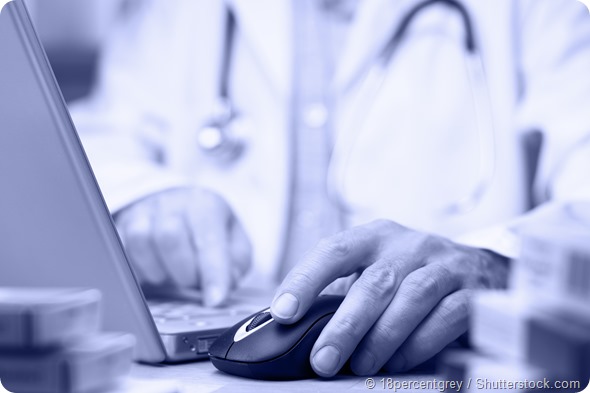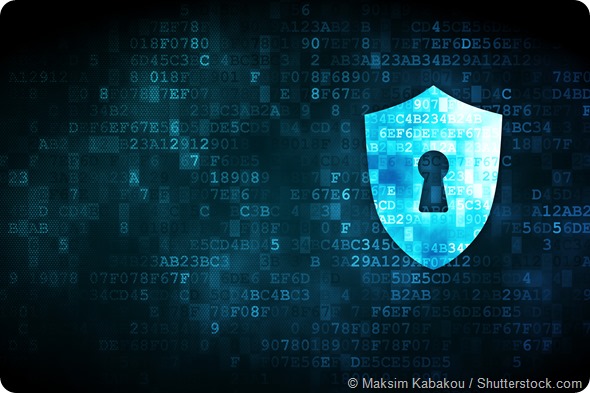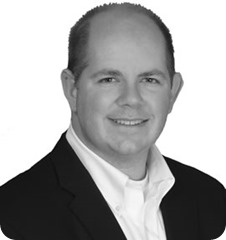It's very much in line with what we're seeing globally with national and even private practice initiatives – providing more patient engagement and enabling patients to see their own records.
This shift of concept is a unique challenge for healthcare providers in terms of how to maintain patient safety and security and how to find innovative ways to securely share that information outside of the hospital environment.

What will healthcare organisations need to consider in order to meet these tight time frames?
First and foremost, is the format in which this information is going to be shared. What we're typically seeing now is a shift from paper-based records to electronic EPR platforms, which is part of the NHS goals.
Then, secure access rights have to be created to ensure it is actually the right patients who are accessing their own information.
The access control, the patient training and how to leverage the technology for the IT organizations are all things that need to be considered. They need to think about how to automate these processes and monitor them in terms of both security and how well they are delivered outside of the hospital.
Do you think most healthcare organisations will be able to meet this target?
Regretfully, no. These are typically very aggressive national goals. The devil is always in the details of how to roll these out.
Some hospital trusts will be able to meet these goals, but I think others will fall slightly behind, depending on how far along they are in terms of their own digital transformation practices.
Then, of course, everyone struggles with annual operating budgets and priorities such as keeping the lights on inside the hospital and other initiatives that are under way as we move in this new direction.
How much work will be needed to ensure that data is kept secure?
That is a significant challenge and it's not one that's unique to healthcare, so the good news is that similar challenges have been solved by other industries. Consider how consumers are now provided – the amount of electronic information that is viewed versus manual processes and how people go online to connect to banking systems and look at utility bills, for example.
Not to say that your records are less important, but these mobile and remote access capabilities have already been established for other industries.
The NHS and healthcare organizations could now build on the lessons learned in trials that took place in other markets or verticals and learn how to now apply them in healthcare.

What do you think the future holds with regards to patients accessing medical records online?
I think we will see improved patient engagement. Having access to their records will mean patients may start questioning and trying to understand their care or the care of family members such as their children. However, there could also be some challenges related to how much information is provided.
I've talked with a number of clinicians that have concerns about giving a patient full access to their records. A clinician might question that they went to medical school and did years of training to interpret this information, only to have it suddenly being accessible to the patient. They're worried about creating undue cause for concern or alarm among patients by now suddenly having too much information available to them.
I can actually relate to this. About six months ago, I had a liver ultrasound and I was able to see the data afterwards. It was actually terrifying because I am not qualified to look at an ultrasound of a liver and identify whether it is in good shape or not!
Everything was fine, but it was the first time I realized that, as much as I may want access to my information, I'm not in a position to self-diagnose and quickly start researching on the internet.
It can become a vicious cycle, with people almost becoming panic stricken and I think one new challenge will be how well people learn to digest what's being presented, as they start to have more and more information made available to them.

How do you think patient access to their medical records will impact the doctor –patient relationship?
It will present new challenges once a patient can go online and access this information 24/7. There will be greater expectations in terms of how quickly they can communicate with their providers – their primary physician and other specialists.
They may start asking questions once their lab results have come in over the weekend, for example, but if the hospital is still set up with a more traditional communications process, that means calling on Monday morning to schedule a time for a consultant to review this information.
If it's being provided all the time at this point, will the hospitals need to adapt new means of communicating with patients through these same portals?

How much of a role do you see wearable devices playing in the future of healthcare?
We see two different types of wearables. We have what I call the clinical grade, which are the telemetry style devices being worn by patients inside hospitals to provide mobility, while information is still fed into the appropriate system. Then, we have the consumer grade tech such as Fitbits and so on.
We're going to start seeing those two zones merging into one. Hospitals around the world are starting to leverage some consumer wearable technology so that they can gain a better insight into patient behavior when they're in a care model operating outside of the hospital.
If we look at cardiac patients, for example, we can ask whether they are starting to move around post care and how many steps are they really taking? We're starting to see pilots using consumer grade technology in hospitals and seeing how much information can be leveraged to improve care.
I think we'll also start to see more advanced technology coming from the medical device manufacturers. I think the devices will allow more accurate monitoring and functionality outside of the hospital with oxygen levels, blood pressure and vital signs, for example, being monitored outside of the hospital and the results being delivered back into the clinical care environment, where patient records systems can be monitored by clinical staff.
What challenges will need to be overcome in terms of big data?
The big data and figuring out how to sift through it all is a good challenge to have.
It presents two challenges. The first is how to address immediate needs when data is brought in. Once a patient’s telemetry information has been transmitted to hospital, what classes as a triggerable event? When do healthcare providers need to take action and communicate with a patient based on what data they're receiving?
Then, there's the big issue of how to effectively correlate and pool the massive amount of data coming from an entire country or region, for example, and start to find the trends of the analysis and the breakdown.
These are all emerging areas that need to be worked on and addressed, both on a tactical level in the hospital and on a more strategic level, from the research point of view.
What are Extreme Networks’ plans for the future?
At the moment, we're heavily focused on helping hospitals and trusts upgrade their infrastructure to support next generation EPR platforms and medical devices that connect to wearables.
We're focusing a lot more on how much intelligence is required from a network infrastructure standpoint, to automate those processes so that less work is required by existing IT departments on connectivity and security. They can focus more on strategic initiatives, goals and growth in terms of adopting these types of automated processes.
Where can readers find more information?
About Bob Zemke CPHIMS, CISSP
Bob Zemke is Director of Healthcare Solutions at Extreme Networks. An IT professional with a broad span of experience in healthcare, Bob has over 15 years working internationally both within hospital IT and as a consultant in next generation network design, deployment and management. He is co-author of a book entitled "WiFi Enabled Healthcare" that is available on Amazon.com.